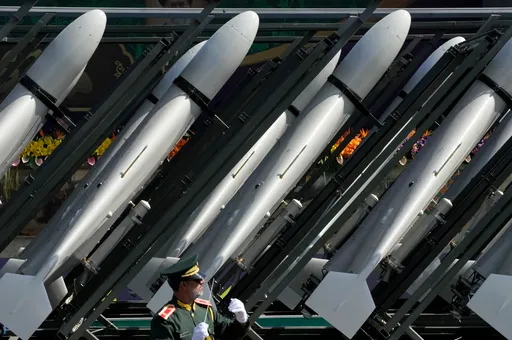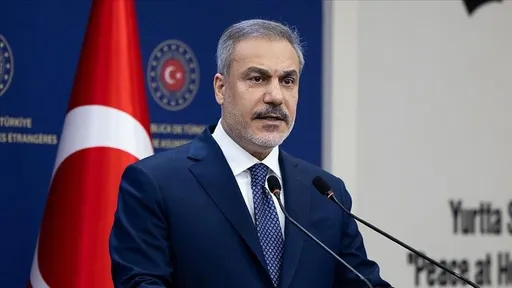A document has emerged from the Slovenian government envisioning new borders for Balkan countries in what would represent a significant regional political realignment.
The unofficial diplomatic document titled simply the "Western Balkans - the way forward" has apparently landed on the President of the European Council's table, Charles Michel.
Neither the European Union (EU) nor the Slovenian government has denied the authenticity of the document first published in the Slovenian investigative news outlet 'Necenzurirano,' which has set Balkan capitals abuzz with speculation about why this document was produced and leaked now.
Following the dissolution of the former Socialist Federal Republic of Yugoslavia, the Balkans' main points of contestation are the "unresolved issues of Serbs, Albanians and Croatians," says the document.
The two-page document envisions a redrawing of borders that would see Bosnia partitioned between Serbia, Croatia and a remaining Muslim majority entity for Bosnians. There would be a unification between Kosovo and Albania, two mainly majority ethnic Albanian countries, which could include parts of North Macedonia where Albanians make up more than 25 percent of the population.
The proposals are nothing short of radical, but ultimately, the document says the current set up is unsustainable and unworkable over the long term.
While the Dayton accords stopped the Bosnian War in the early 1990s and the NATO campaign put an end to ethnic cleansing in Kosovo by Serbia later that decade, "the key issues nevertheless remained unresolved," says the document.
Between 1992-1995 Serb forces in Bosnia embarked on a campaign of ethnic cleansing and genocide of Muslims, which left more than 65,000 dead and the mass rape of women.
The war culminated in the single largest massacre in Srebrenica, which left more than 8,300 Bosnian Muslim men dead at the hands of Serb troops while international forces watched. Ultimately millions were displaced, altering the demographic map of pre-war Bosnia.
In 1999, Kosovo, a then Albanian majority autonomous region of Serbia, experienced its own ethnic cleansing, which left more than 10,000 dead and hundreds of thousands displaced. Kosovo declared independence in 2008, which Serbia does not recognise, but more than 100 other countries do.
A recipe for unlocking a regional deadlock?
While Kosovo has set up functioning institutions, albeit operating imperfectly, Bosnia has struggled to create a unified system owing to intransigent Serb and Croatian political forces.
Bosnia has 5 presidents, 14 parliaments, 136 ministers and hundreds of political representatives, making it one of the most complicated systems of governance in the world. That's mainly due to the Dayton accords, which froze ethnic divisions in time.
The Slovenian paper seeks a controversial but novel solution to the interlocking regional deadlocks built over the last few decades.
"The Serb national issues can be largely solved by joining a large part of Republika Srpska with Serbia. In this case, Serbia is willing to agree on joining Kosovo with Albania," says the document.
For some Bosnians, this might be a bitter pill to contend with. It would effectively reward Serbia for the ethnic cleansing it carried during the Bosnian war and, in part, fulfil an aim of that war - a Greater Serbia.
However, should the plan be accepted by international powers and regional countries, it could allow Bosniaks to "gain an independently functioning state and assume full responsibility for it," says the document, something Bosniaks arguably lack - but may not be willing to trade in this case.
For Albanians in the Balkans, the deal would correct a historical problem that has resulted in the odd situation of most ethnic Albanians living outside of the Albanian state's borders.
Albanians in Montenegro, Serbia and North Macedonia have faced periodic bouts of discrimination resulting in rebellions.
"In Kosovo, 95 percent of the population want to unite with their Albanian nation of origin. The situation is similar in Albania. Their border between Albania and Kosovo de facto does not exist," says the Slovenian report.
In Kosovo, the centre-left Levizja Vetevendosje (LVV) — Kosovo's Self-determination party — led by Albin Kurti recently garnered almost 50 percent of the votes. It's also the party with the most overt platform seeking eventual peaceful unification with Albania.
Juxhin Cela, a political activist in Albania, speaking to TRT World, welcomed the Slovenian paper as "the only way to guarantee stability" in the region.
"No ethnic group should live in a country they do not want, and history has shown that it does not represent anything more than something that has created conflict. Minority vetoes damage the ability of states to function," Cela added.
For Kosovo, which has struggled with gaining international recognition, a de facto union with Albania would put Serb efforts to undermine Kosovo's sovereignty and international standing to rest.
Yet, support for the deal is by no means a forgone conclusion. Opponents of the Slovenian proposal have called it a "serious threat to peace."
Yet the regional status quo that has frozen the region over the last 30 years is not without its problems.
International reactions
Discussions with regional and international actors are already underway, says the paper, adding that "Serbia, Croatia and Albania have stable governments at the moment and their elected politicians are capable of taking strategic decisions."
The Croatian question could be resolved either "by merging the majority Croatian cantons" with Bosnia or "by granting special status to the Croatian part of BiH (using South Tyrol as a model)."
South Tyrol is a German-speaking autonomous region in Italy that could serve as a model for regions fraught with ethnic problems.
Far from being an altruistic proposal by Slovenia, the report also has what some have called an "Islamophobic" undertone.
It warns the present status quo has allowed Turkey to increase its influence in the region, viewing the proposals as one way of mitigating it.
However, there are few grounds for believing that Turkey, which has cultural, economic, historical and religious links to the region going back hundreds of years, would be disadvantaged by a deal that reduces regional ethnic-religious war.
More controversially, the report doubts Bosnia's future EU path owing to a "increasingly stronger influence of Turkey and radical Islam."
In a research paper looking at the politics of the European Union enlargement process in the Balkans, the academic Piro Rexhepi has warned that Brussels "labours in the enactment of physical and political borders that divide Muslims in the Balkans from the larger Muslim world."
Rexhepi added that the EU views particularly Muslim-majority Balkan countries "as a potential security threat to the overall safety and stability of the EU."
For now, however, the Slovenian proposal has undoubtedly sparked a discussion, and eyes will now be on the country taking over the Presidency of the Council of the EU in the second half of 2021 for any signs that such a plan could receive more political support.























